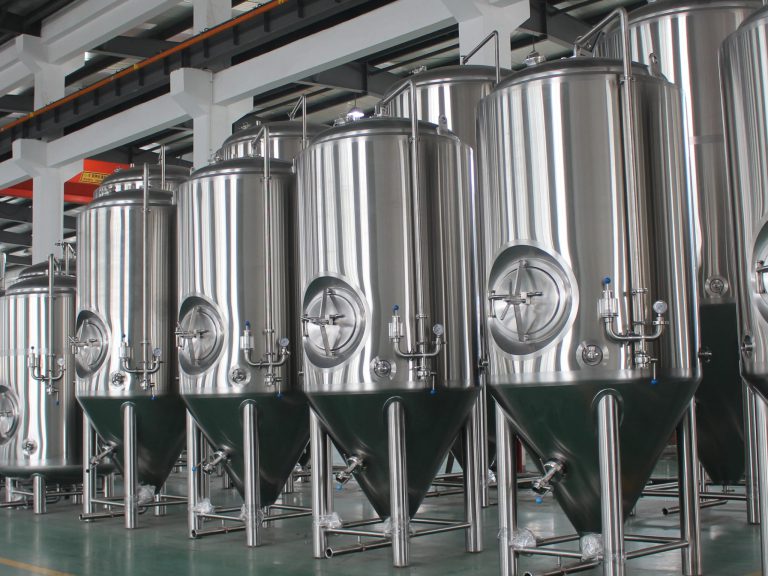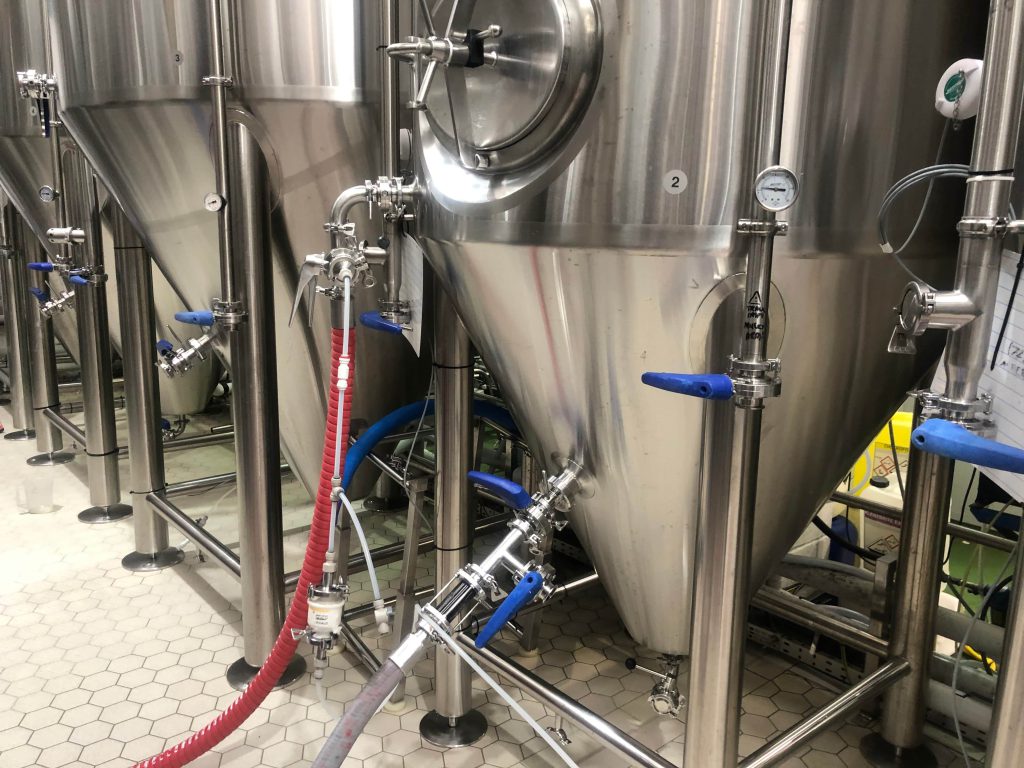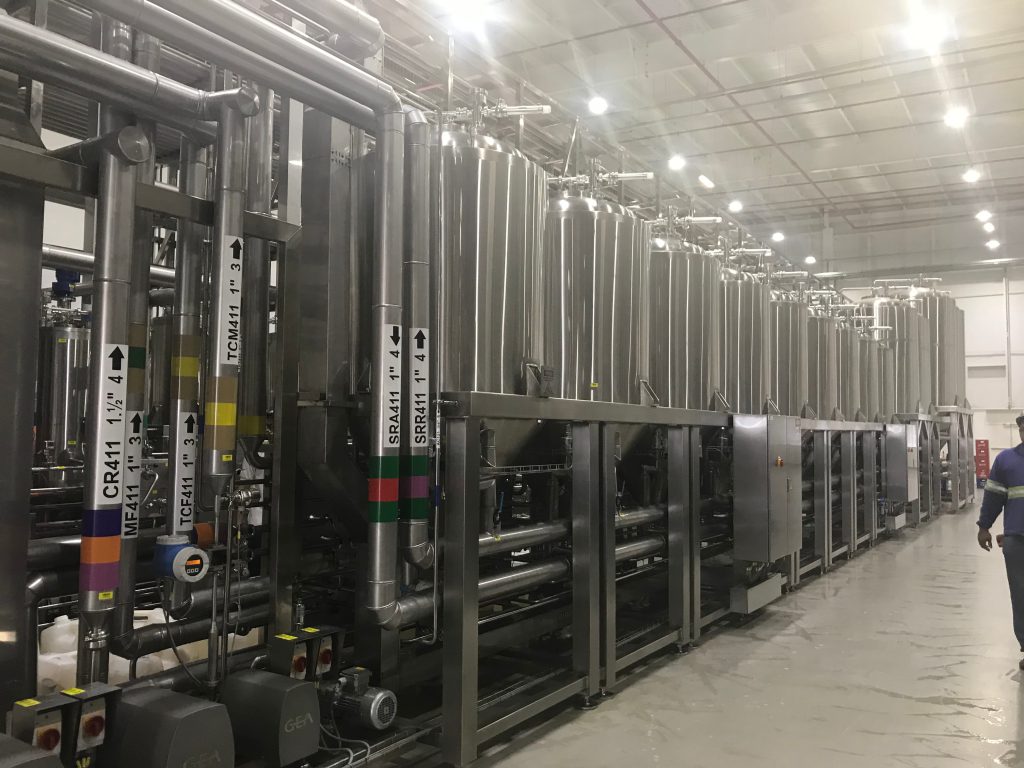Introduction

The craft beer revolution has swept across the globe, bringing with it a demand for high-quality, unique brews. To meet this demand, commercial breweries rely on a range of top-tier commercial brewing supplies. These supplies are crucial for ensuring consistency, efficiency, and the overall quality of the final product. Investing in the right commercial brewing supplies can make the difference between a good beer and a great one. We will explore the key components of commercial brewing supplies, and examine the importance of each item.
Essential Commercial Brewing Supplies: The Foundation
A successful brewery starts with a solid foundation of essential commercial brewing supplie. This includes brewing vessels, fermentation tanks, and kegging equipment. These foundational commercial brewing supplies ensure the basic processes of brewing are executed efficiently.
High-Quality Brewing Vessels for Commercial Brewing Supplie
Brewing vessels are the heart of any brewery. These vessels, often made of stainless steel, must be durable, easy to clean, and capable of maintaining precise temperatures. Investing in high-quality brewing vessels is crucial for consistent and efficient brewing.
Fermentation Tanks: Critical Commercial Brewing Supplie
Fermentation tanks are where the magic happens. These tanks provide the ideal environment for yeast to convert sugars into alcohol. The quality and design of fermentation tanks directly impact the flavor and quality of the beer.
Kegging Equipment: Final Stage Commercial Brewing Supplie
Kegging equipment is essential for packaging and distributing the final product. Efficient kegging systems ensure minimal waste and maintain the beer’s quality from brewery to consumer.
Advanced Commercial Brewing Supplies: Enhancing Efficiency
Beyond the basics, advanced commercial brewing supplie can significantly enhance efficiency and quality. These include automated systems, filtration equipment, and advanced monitoring tools.
Automated Brewing Systems for Commercial Brewing Supplie
Automated brewing systems streamline the brewing process, reducing labor costs and ensuring consistency. These systems control temperature, timing, and other critical variables, allowing brewers to focus on recipe development and quality control.
Filtration Equipment: Refining Commercial Brewing Supplie
Filtration equipment removes unwanted particles and clarifies the beer, resulting in a cleaner, more refined product. Advanced filtration systems can significantly improve the beer’s appearance and taste.
Advanced Monitoring Tools for Commercial Brewing Supplie
Advanced monitoring tools provide real-time data on temperature, pressure, and other critical parameters. This data allows brewers to make precise adjustments, ensuring optimal brewing conditions.
Packaging and Distribution: Commercial Brewing Supplies
Packaging and distribution are crucial final steps in the brewing process. Choosing the right commercial brewing supplie for these stages is essential for maintaining product quality and reaching consumers.
Bottling and Canning Equipment for Commercial Brewing Supplie
Bottling and canning equipment must be efficient and reliable. These systems ensure the beer is packaged securely and maintains its quality during transportation and storage.
Distribution Systems: Commercial Brewing Supplie Logistics
Efficient distribution systems ensure the beer reaches consumers in a timely and cost-effective manner. This includes temperature-controlled transportation and proper storage facilities.
Cleaning and Sanitation: Commercial Brewing Supplie
Maintaining a clean and sanitary brewery is essential for producing high-quality beer. Proper cleaning and sanitation commercial brewing supplie are critical for preventing contamination and ensuring consistency.
Cleaning Chemicals and Equipment for Commercial Brewing Supplie
Specialized cleaning chemicals and equipment are necessary for maintaining a sanitary brewery. These products effectively remove residue and prevent the growth of harmful microorganisms.
Sanitation Procedures: Key Commercial Brewing Supplie Practices
Implementing strict sanitation procedures is crucial for preventing contamination. This includes regular cleaning, sanitizing, and inspection of all commercial brewing supplie.
Quality Control: Commercial Brewing Supplies Testing
Quality control ensures the beer meets the highest standards. Testing equipment and procedures are essential for maintaining consistency and identifying potential issues.
Testing Equipment for Commercial Brewing Supplie
Testing equipment, such as pH meters and spectrophotometers, allows brewers to measure and control critical parameters. This equipment is essential for ensuring consistent quality.
Quality Assurance Procedures: Commercial Brewing Supplie Standards
Implementing robust quality assurance procedures helps maintain consistency and prevent defects. This includes regular testing, documentation, and analysis of brewing processes.
Table of Commercial Brewing Supplies Components
| Component Category | Specific Equipment/Supplies | Key Functions |
|---|---|---|
| Brewing Vessels | Mash Tuns, Brew Kettles | Heating, mixing, and boiling wort |
| Fermentation Tanks | Conical Fermenters, Conditioning Tanks | Fermenting wort, conditioning beer |
| Kegging Equipment | Keg Washers, Keg Fillers | Cleaning and filling kegs |
| Automated Systems | Control Panels, Sensors | Automating brewing processes |
| Filtration Equipment | Plate Filters, Centrifuges | Clarifying beer |
| Monitoring Tools | Temperature Probes, Pressure Gauges | Real-time process monitoring |
| Bottling/Canning | Fillers, Sealers | Packaging beer |
| Distribution | Refrigerated Trucks, Storage Tanks | Transporting and storing beer |
| Cleaning/Sanitation | CIP Systems, Sanitizers | Maintaining hygiene |
| Testing Equipment | pH Meters, Spectrophotometers | Quality control testing |
Maintaining Commercial Brewing Supplies
Proper maintenance of commercial brewing supplie is crucial for longevity and efficiency. Regular inspections, cleaning, and repairs can prevent costly breakdowns and ensure consistent performance.
Regular Inspections: Commercial Brewing Supplie Checkups
Regular inspections help identify potential issues before they become major problems. This includes checking for leaks, wear and tear, and other signs of damage.
Preventative Maintenance: Commercial Brewing Supplie Longevity
Implementing a preventative maintenance schedule can extend the lifespan of commercial brewing supplies. This includes regular cleaning, lubrication, and replacement of worn parts.
Sourcing Commercial Brewing Supplie

Sourcing high-quality commercial brewing supplies from reputable suppliers is essential. This ensures the equipment is reliable, durable, and meets the specific needs of the brewery.
Reputable Suppliers: Commercial Brewing Supplie Partners
Choosing reputable suppliers ensures access to high-quality equipment and reliable support. This includes suppliers with a proven track record and excellent customer service.
Custom Solutions: Tailored Commercial Brewing Supplie
Some suppliers offer custom solutions tailored to the specific needs of the brewery. This can include custom-designed equipment and specialized support.
Conclusion
Investing in top-tier commercial brewing supplies is crucial for any brewery looking to produce high-quality craft beer. From essential brewing vessels to advanced monitoring tools, each component plays a vital role in the brewing process. By prioritizing quality, efficiency, and maintenance, breweries can ensure consistent and exceptional brews. Contact us today to learn how our premium commercial brewing supplies can elevate your brewery’s output.
FAQ
Q: What are the essential commercial brewing supplie for a new brewery?
A: Essential commercial brewing supplie include brewing vessels, fermentation tanks, kegging equipment, and basic cleaning supplies.
Q: How often should commercial brewing supplies be cleaned?
A: Commercial brewing supplies should be cleaned and sanitized after each use to prevent contamination.
Q: What are the benefits of automated brewing systems?
A: Automated brewing systems improve consistency, reduce labor costs, and streamline the brewing process.

